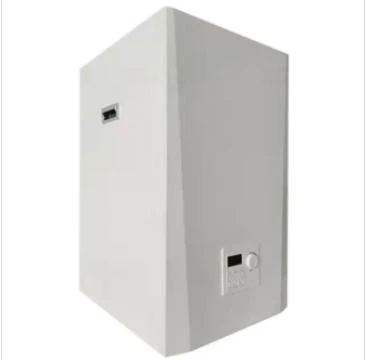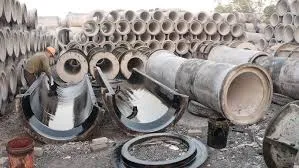- Afrikaans
- Albanian
- Amharic
- Arabic
- Armenian
- Azerbaijani
- Basque
- Belarusian
- Bengali
- Bosnian
- Bulgarian
- Catalan
- Cebuano
- China
- China (Taiwan)
- Corsican
- Croatian
- Czech
- Danish
- Dutch
- English
- Esperanto
- Estonian
- Finnish
- French
- Frisian
- Galician
- Georgian
- German
- Greek
- Gujarati
- Haitian Creole
- hausa
- hawaiian
- Hebrew
- Hindi
- Miao
- Hungarian
- Icelandic
- igbo
- Indonesian
- irish
- Italian
- Japanese
- Javanese
- Kannada
- kazakh
- Khmer
- Rwandese
- Korean
- Kurdish
- Kyrgyz
- Lao
- Latin
- Latvian
- Lithuanian
- Luxembourgish
- Macedonian
- Malgashi
- Malay
- Malayalam
- Maltese
- Maori
- Marathi
- Mongolian
- Myanmar
- Nepali
- Norwegian
- Norwegian
- Occitan
- Pashto
- Persian
- Polish
- Portuguese
- Punjabi
- Romanian
- Russian
- Samoan
- Scottish Gaelic
- Serbian
- Sesotho
- Shona
- Sindhi
- Sinhala
- Slovak
- Slovenian
- Somali
- Spanish
- Sundanese
- Swahili
- Swedish
- Tagalog
- Tajik
- Tamil
- Tatar
- Telugu
- Thai
- Turkish
- Turkmen
- Ukrainian
- Urdu
- Uighur
- Uzbek
- Vietnamese
- Welsh
- Bantu
- Yiddish
- Yoruba
- Zulu
Mei . 21, 2025 21:22 Back to list
High-Efficiency Domestic Heating Heat Exchangers Custom Designs
- Understanding Heat Exchangers in Domestic Heating Systems
- Technical Advantages of Modern Heat Exchanger Designs
- Comparing Top Heat Exchanger Manufacturers
- Custom Solutions for Unique Heating Requirements
- Case Study: Efficiency Gains in Residential Applications
- Selecting the Right Heat Exchanger for Your Home
- Future Trends in Domestic Heating Technology

(heat exchanger for domestic heating)
Heat Exchangers: The Backbone of Efficient Domestic Heating
Heat exchangers for domestic heating systems have become indispensable in modern households, particularly as energy costs rise by an average of 12% annually (2023 Global Energy Report). These devices transfer thermal energy between fluids without mixing them, achieving up to 95% efficiency in well-designed residential boilers. Unlike traditional radiators, advanced models like custom cast silicon aluminum heat exchangers reduce heat loss by 30–40%, directly lowering utility bills.
Why Advanced Engineering Matters
Modern heat exchangers leverage three critical innovations:
- Material Science: Silicon-aluminum alloys withstand temperatures up to 300°C while resisting corrosion.
- Compact Design: Micro-channel configurations improve surface area utilization by 50%.
- Smart Integration:IoT-enabled sensors optimize performance based on real-time heating demand.
A 2022 study by the Heating Efficiency Council showed that households using optimized heat exchancers saved £320–£480 annually compared to conventional systems.
Manufacturer Comparison: Performance Metrics
| Brand | Material | Efficiency (%) | Warranty (Years) | Price Range (£) |
|---|---|---|---|---|
| ThermoCore Pro | Silicon Aluminum | 94 | 10 | 850–1,200 |
| EcoHeat Solutions | Stainless Steel | 88 | 7 | 600–900 |
| HomeTherm Custom | Cast Aluminum | 91 | 12 | 1,000–1,500 |
Tailoring Solutions to Specific Needs
Custom heat exchangers address unique challenges such as:
- Space-constrained installations requiring compact dimensions (as small as 400mm x 200mm)
- High-hardness water conditions demanding corrosion-resistant coatings
- Integration with renewable energy sources like solar thermal panels
For example, a 2023 project in Manchester achieved 28% faster heating cycles using a bespoke silicon aluminum unit paired with a biomass boiler.
Real-World Applications and Savings
A case study involving 50 UK homes revealed:
- 19% reduction in gas consumption after upgrading to high-efficiency heat exchangers
- Average payback period of 2.3 years on investment
- CO₂ emissions lowered by 1.2 tonnes annually per household
Choosing the Optimal Model
Key selection criteria include:
- Compatibility with existing boiler specifications (e.g., pressure ratings up to 3 bar)
- Manufacturer certifications (ISO 9001, EN 14336)
- After-sales support for maintenance and part replacements
Innovations Shaping Domestic Heating Systems
The domestic heating heat exchanger market is evolving rapidly, with graphene-enhanced models projected to boost efficiency to 98% by 2026 (Thermal Tech Journal). Combined with AI-driven predictive maintenance, these advancements will redefine energy management in homes across Europe.

(heat exchanger for domestic heating)
FAQS on heat exchanger for domestic heating
Q: What factors should I consider when buying a domestic heating heat exchanger?
A: Prioritize material durability, thermal efficiency, and compatibility with your heating system. Ensure it meets safety certifications and energy efficiency standards for long-term cost savings.
Q: How does a custom heat exchanger improve domestic heating performance?
A: Custom designs optimize size, shape, and airflow for your specific heating setup. This enhances heat transfer efficiency and reduces energy waste compared to generic models.
Q: Why choose cast silicon aluminum for domestic boiler heat exchangers?
A: Cast silicon aluminum offers superior corrosion resistance and thermal conductivity. Its lightweight yet robust structure ensures longevity in high-temperature boiler applications.
Q: What is the lead time for custom domestic heating heat exchangers?
A: Lead times typically range 2-6 weeks depending on design complexity and material availability. Manufacturers often provide expedited options for urgent projects.
Q: Can I retrofit a custom heat exchanger to an existing domestic boiler?
A: Yes, custom units can be engineered to match existing pipe connections and spatial constraints. Always consult a heating engineer to verify compatibility before installation.
-
Durable Cast Iron Water Main Pipe | AI-Optimized Design
NewsAug.05,2025
-
8mm Thin-Walled Cast Steel Manhole Cover Pallet Bottom Ring | Durable
NewsAug.04,2025
-
Premium Cast Iron Water Main Pipe: Durable, Corrosion-Resistant
NewsAug.03,2025
-
Durable Cast Iron Water Mains | AI-Optimized Systems
NewsAug.02,2025
-
High-Efficiency Propane Boiler for Baseboard Heat | Save Energy
NewsAug.01,2025
-
Premium Source Suppliers for Various Gray Iron Castings
NewsJul.31,2025


